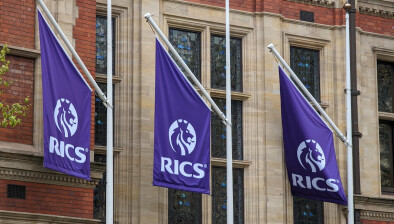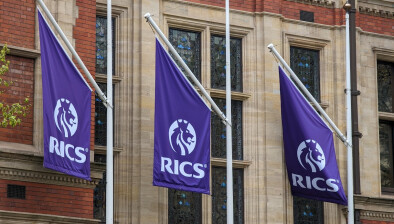Cost of living causing consumers to think again about retrofitting, report finds

Homeowners are concentrating spending on other priorities
New research from RICS and YouGov has revealed that consumers are now concerned about paying for the cost of living above upgrading their homes.
Retrofitting has obvious benefits, such as being able to maintain a constant temperature in the home, as well as increasing the desirability of your property - the December 2019 Residential Market Survey, prior to the energy crisis, cited almost two-thirds of the survey’s respondents believed that the willingness to pay for energy-efficient homes would rise in the next three years.
However, the latest consumer research from RICS and YouGov shows that homeowners are unsurprisingly looking to concentrate spending on escalating household costs.
The new research backs up previous calls made by the institution in 2020 for more policy measures to incentivise industry and consumers to retrofit the UK housing stock. The research found that while 34% of homeowners said they would invest in green technology to lower bills in the future, 45% would be focusing on using any savings to pay for their existing living expenses, meaning more incentives and cheaper options must be made available if the country is to stay on track to meet target and green 15 million properties.
This latest research follows the RICS January 2020 Residential Market Survey where members operating in the residential sales and lettings market stated that without strong market-driven incentives, regulation was the policy lever with the greatest potential to improve energy efficiency outcomes. Alternatively, a tax policy could achieve a similar effect through a mix of stamp duty and a reduction of VAT on home improvements.
Currently, the UK Government’s ambition to hit net zero carbon emissions requires significant numbers of private homeowners to retrofit their properties to make them greener.
51% who confirmed they hadn’t already installed new energy-saving measures in their homes but would know how to, said it was because of the costs involved. And of the same group, even those who would consider it to make their home more attractive to prospective buyers, 40% said they’d only consider spending around £1000 to £5000 on energy improvements, which could pay for some solar panels but wouldn’t cover the heat-pump.
As the cost of living continues to consume more household finances, measures are needed to avoid many properties failing to meet targets and becoming un-mortgageable. To review the potential impact that failure to support consumers would have on the housing market, most homeowners (55%) would consider installing energy-saving schemes if they knew it would make their property more attractive when it came to selling up. With figures from Rightmove showing that greener homes can attract a higher premium, properties need more than an EPC assessment to help inform decisions.
As EPCs aren’t the best measure for all properties, as some listed buildings can’t have triple glazing for example, RICS is recommending and working with lenders and government to look into ‘Retrofit Surveys’ which would enlist the expertise of a professional – such as a building surveyor- to provide detailed advice on what technologies homeowners could install to help inform their decisions. This is supported with 77% of homeowners saying they’d find this advice helpful when thinking of buying a new home.
Sam Rees, senior public affairs officer at RICS, said: “The retrofitting of millions of UK homes will be essential to helping to meet our net zero ambitions, however homeowners’ immediate concerns are understandably with the rising cost of living, especially their energy bills. It is important to recognise that retrofitting and the cost of living are not mutually exclusive issues.
“A suitably retrofitted, low-carbon home can help with the long-term challenges of the cost of living and reducing high levels of energy consumption. Achieving this however is not cheap. With the UK Government giving financial support to homeowners to support them with rising energy prices, RICS is calling on the government to extend this support and provide additional financial incentives to homeowners to encourage retrofitting and ultimately helping to tackle the cause of high energy usage.
“Before any significant investment is made on retrofit measures, RICS urges homeowners and the government to ensure a retrofit assessment is undertaken on the property first – ensuring that no unintended consequences occur such as overheating or increased energy demand. This is critical to protecting consumers and RICS is undertaking significant research to support such assessments.”

















